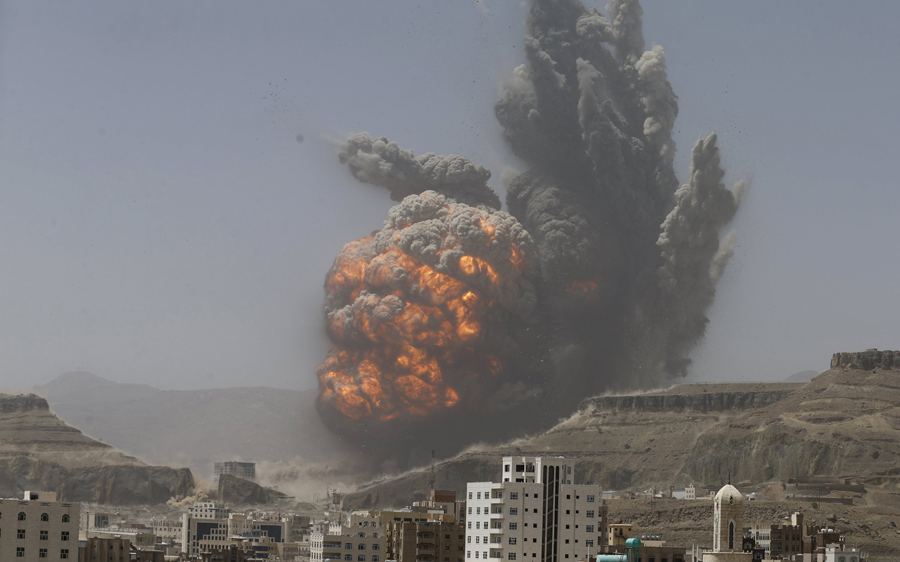On 6 December, United States President Donald Trump issued a brief statement in which he called on the Government of Saudi Arabia to end its blockade of Yemen. In his statement, President Trump addressed the blockade as a humanitarian issue and stated that he had directed a member of his administration to reach out to the Saudi government and “request that they completely allow food, fuel, water, and medicine to reach the Yemeni people who desperately need it.”
Since the Saudi-led coalition entered the Yemen conflict in 2015, the BBC reports that more than 8,600 people have been killed and 49,000 injured, including many by coalition airstrikes which have struck civilian targets, including schools and hospitals. The coalition has also launched a devastating blockade that has kept necessary food and medicine from the country and contributed to a humanitarian crisis. As a result, there is a suspected outbreak of diphtheria, over 700,000 Yemenis have been affected by an outbreak of cholera, and 20.7 million Yemenis – including 11 million children – are in need of humanitarian assistance. According to Human Rights Watch, the indiscriminate nature of the blockade may amount to war crimes, because of its widespread effect on civilians.
Despite potential allegations of war crimes committed by the Saudi-led coalition, and pressure from numerous human rights organizations, the US has continued to support Saudi Arabia in its air campaign and blockade. The US helped weaken the recent UN resolution on Yemen, and continues to provide the Saudi-led coalition with significant military support, in particular billions of dollars of weapons. Because of these close ties, the US government has been largely silent on the war in Yemen.
However, public awareness of the conflict has grown and helped lead to Congressional scrutiny. Since late September 2016 when the US Senate voted 71 to 27 to kill legislation that would have stopped a $1.15 billion sale of tanks to Saudi Arabia over concerns of human rights abuses, there has been a growing movement in Congress calling for more accountability for the US role in the war in Yemen. In early July 2017, Congress only narrowly approved the sale of precision-guided missiles to Saudi Arabia with a vote of 53 to 47. Then, on 13 November, the House of Representative passed a symbolic resolution stating that American military support to the Saudi-led coalition is not authorized by Congress. President Trump’s statement urging an end to the blockade adds the US to an increasing list of states urging Saudi Arabia to address the human cost of the conflict and demonstrates mounting concern over the humanitarian situation, even at the highest levels of US government.
The addition of the White House’s voice to the chorus calling for an end to the conflict increases the pressure on Saudi Arabia and its coalition partners to find a peaceful settlement to the war. However, the US government must follow this statement with action. It must work seriously and constructively with other global actors to bring an end to the Yemeni war and prevent the worsening of the humanitarian crisis in the country. Two steps the US can take are to actively support the UN-led accountability process, and to use its substantial political and material leverage to continue to press Saudi Arabia to resolve the war and address the plight of civilians.





